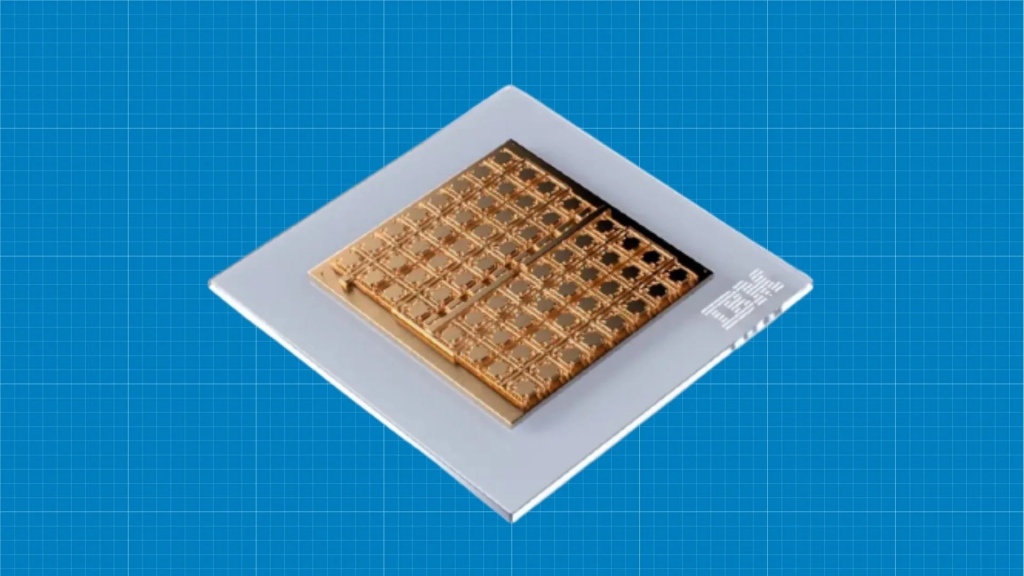Tech giant IBM has taken a significant stride toward revolutionizing artificial intelligence (AI) with the introduction of a groundbreaking prototype analog AI chip. This innovative chip emulates the intricate workings of the human brain, exhibiting the potential to enhance AI efficiency and significantly reduce energy consumption for various devices, including computers and smartphones.
In a recent paper published by IBM Research, the company detailed the novel capabilities of its state-of-the-art chip. The prototype boasts 64 Analog In-Memory Compute (AIMC) cores, intricately interconnected through an on-chip communication network. These cores not only implement digital activation functions but also handle the intricate processing associated with individual convolutional layers and long short-term memory units—a hallmark of complex neural networks.
What sets this chip apart is its unique emulation of neural network operations present in biological brains. Each tile or core within the chip incorporates compact, time-based analog-to-digital converters, facilitating seamless transitions between analog and digital domains. Additionally, the integration of lightweight digital processing units within each core enables straightforward nonlinear neuronal activation functions and scaling operations.

IBM’s breakthrough carries significant implications for AI-driven applications. Presently, many AI-focused chips suffer from disjointed memory and processing units, resulting in slow computations and data shuffling between these components. IBM’s new chip overcomes this limitation with its integrated design, enabling efficient execution of AI models without frequent data transfers.
Thanos Vasilopoulos, a researcher at IBM’s Switzerland-based research lab, underscored the chip’s energy efficiency by likening it to the human brain’s exceptional performance on minimal power. He explained that the chip’s superior energy efficiency opens doors for executing intricate tasks within power-constrained environments such as vehicles, mobile phones, and cameras. Cloud service providers are also poised to reap benefits by adopting these chips to curtail energy expenses and reduce their carbon footprint.

As AI continues to advance, the demand for processing power and efficiency intensifies. IBM’s analog AI chip presents a compelling solution to bridge the gap between current computing methods and the evolving demands of AI applications. With the potential to reshape the landscape of AI-driven technology, this prototype chip holds promise for propelling the industry toward greater energy efficiency and unparalleled computational capabilities. As IBM’s visionary technology matures, it might eventually redefine the way we interact with AI on a daily basis, opening doors to new possibilities across a diverse range of sectors.


